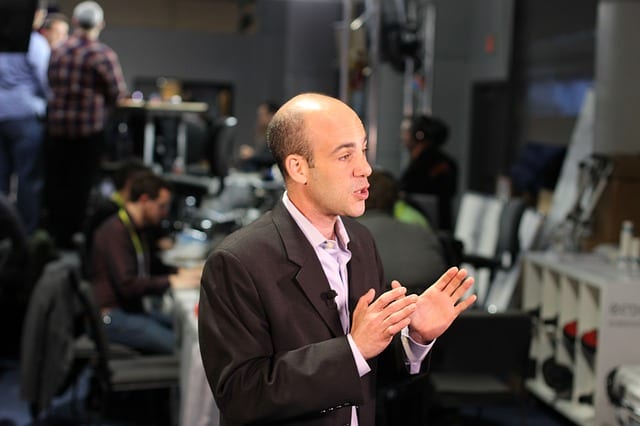5 reasons you should ignore that stock analyst on TV who says “buy”

Armies of stock analysts look at stocks in markets all over the world, determined to uncover those that they can say are a “buy.” They’re the articulate people on CNBC or CNN, employed by the world’s biggest brokerages and investment banks, talking about stocks and markets. Or else they’re the quotable “experts” in the print media.
Back in December I wrote, “There’s an entire industry dedicated to telling you what stocks you should buy. The main job of thousands of stock analysts in Singapore and Hong Kong – not to mention London and New York and other financial centres around the world – is to tell investors what stocks are a ‘buy’.”
These people sound like they know what they’re talking about. The reality, though, is that very few of them do.
I used to be a stock analyst. I looked at stocks in half a dozen sectors over my brokerage career, and I hired and supervised dozens of analysts. During that time I came to learn a few things about this industry…
“Buy” doesn’t mean you should buy. As we wrote in December, at the time 70 percent of stocks with an analyst rating in Asia were rated a “buy” by at least half of the analysts that were covering them. (That was just a few weeks before markets in the region fell 10 percent or more.)
But that didn’t mean that you, or anyone else, should have bought the stocks they recommended.
Stock analysts have a lot of reasons to call a stock a “buy.” They might want to cozy up to management (to get information – see below), to try to get banking business from the company, to generate commissions for their employer… or maybe they don’t want to stand out from the crowd of analysts who are saying a stock is a “buy.” (We’ve written about the bandwagon effect here.)
So… buyer beware of “buy.”
Most analysts just guess. A company that’s listed on a stock exchange has lots of moving parts. The economic environment, demand for the company’s products, the competition, the cost of inputs, the quality of the workforce… it’s a very, very long list of factors that have an enormous impact on a company’s performance (and its share price).
And only a few people at the company have a real understanding of what’s really happening (see below). Everyone else? They don’t know enough to predict… it’s nothing more than a guess.
“We think” means “management says.” Senior management at companies are often among the few people who really do know what’s going on at the company. So when stock market analysts speak with the head people at a company, they often take their word as gospel. It’s a bad idea to lie, but of course a CEO is going to put his own company in the best possible light.
So whenever an analyst says, “We think…” about a company, it often means this: Company management thinks this, and I’m just parroting what they told me.
Price targets are fairly tales. “An Analyst Has Put a $1,000 Price Target on Amazon Shares,” blared a recent Bloomberg headline. Stock analysts like to pretend that price targets – that is, what they think a stock is worth – are derived through a highly scientific process so complicated that it makes alchemy look simple.
But the reality is that an analyst with an earnings model (usually a hopelessly complicated, sprawling Excel spreadsheet) can tweak a few figures and assumptions to produce a price target that is whatever he wants it to be. So ignore anything you read about an analyst’s price target.
Stock market analysts aren’t investors. They may invest their own money. But unless they work for an asset management company, it’s rare for stock analysts on TV to actually manage money.
You should only buy a stock in the context of the diversification of your portfolio, your investment horizon, your risk tolerance level, and a lot of other factors. A stock analyst saying “buy” has nothing to do with you. It’s only about where he thinks the share price is going to be in the future (which – see above – may just be a fairy tale).
Many analysts are good at their jobs and have real insight. But stock analysts on TV – like private bankers – have no requirement to put your interests first. So when they say “buy,” just don’t.



